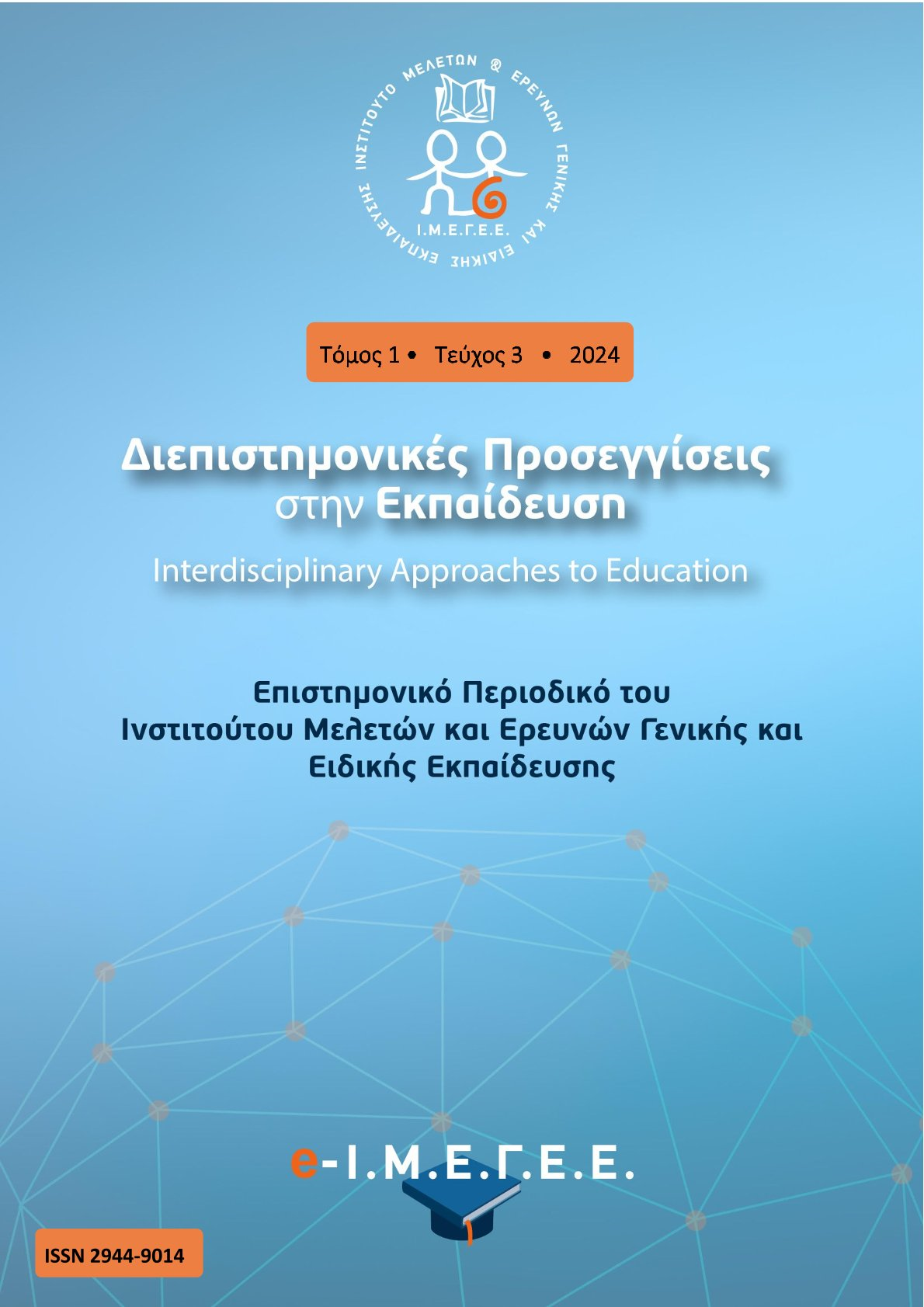Η διαμόρφωση της εκπαιδευτικής πολιτικής μέσα στα πλαίσια της παγκοσμιοποίησης και των νέων τεχνολογικών εξελίξεων.

Περίληψη
Το παρόν πόνημα προσφέρει μια ευρεία εξέταση της ιστορικής διαμόρφωσης της εκπαίδευσης, εστιάζοντας στους επιδραστικούς παράγοντες και παίκτες, που επηρέασαν την χάραξη πολιτικών σε διαφορετικές χρονικές περιόδους. Συγκεκριμένα, παρακολουθεί την εξέλιξη της εκπαίδευσης, εξετάζοντας την επίδραση των κοινωνικών, πολιτικών και οικονομικών παραγόντων στην ανάπτυξή της. Στη συνέχεια, εμβαθύνει στη μεταβαλλόμενη φύση της, καθώς οι κοινωνίες εξελίσσονταν, συζητώντας τον αντίκτυπο της παγκοσμιοποίησης και των τεχνολογικών εξελίξεων στα εκπαιδευτικά παραδείγματα. Ιδιαίτερη αναφορά γίνεται στον ρόλο του εθνικού κράτους και των υπερεθνικών οργανισμών στη διαμόρφωση εισηγήσεων που επηρεάζουν τα εκπαιδευτικά συστήματα. Τέλος, εξετάζεται το παράδειγμα του ελληνικού εκπαιδευτικού συστήματος, σε σχέση με άλλων σύγχρονων κρατών, ως προς τη δομή και τους στόχους τους.
Λεπτομέρειες άρθρου
- Πώς να δημιουργήσετε Αναφορές
-
RACHIOTIS, T., & Παυλόπουλος Α. (2024). Η διαμόρφωση της εκπαιδευτικής πολιτικής μέσα στα πλαίσια της παγκοσμιοποίησης και των νέων τεχνολογικών εξελίξεων. Διεπιστημονικές Προσεγγίσεις στην Εκπαίδευση, 1(3). https://doi.org/10.12681/.35307
- Ενότητα
- Articles
Ενημέρωση για τα πνευματικά δικαιώματα
Οι συγγραφείς των άρθρων που δημοσιεύονται στο περιοδικό διατηρούν τα δικαιώματα πνευματικής ιδιοκτησίας επί των άρθρων τους, δίνοντας στο περιοδικό το δικαίωμα της πρώτης δημοσίευσης. Άρθρα που δημοσιεύονται στο περιοδικό διατίθενται με άδεια Creative Commons 4.0 και σύμφωνα με την άδεια μπορούν να χρησιμοποιούνται ελεύθερα, με αναφορά στο/στη συγγραφέα και στην πρώτη δημοσίευση για μη κερδοσκοπικούς σκοπούς και με δικαίωμα τροποποίησης μόνον με παρόμοια διανομή (αν αναμείξετε, τροποποιήσετε, ή δημιουργήσετε πάνω στο υλικό, πρέπει να διανείμετε τις δικές σας συνεισφορές υπό την ίδια άδεια όπως και το πρωτότυπο).
Απαγορεύεται η αντιγραφή, αποθήκευση και διανομή της παρούσας εργασίας, εξ’ολοκλήρου ή τμήματος αυτής, για εμπορικό σκοπό. Επιτρέπεται η ανατύπωση, αποθήκευση και διανομή για σκοπό µη κερδοσκοπικό, εκπαιδευτικής ή ερευνητικής φύσης, υπό την προϋπόθεση να αναφέρεται η πηγή προέλευσης και να διατηρείται το παρόν µήνυµα. Ερωτήματα που αφορούν τη χρήση της εργασίας για κερδοσκοπικό σκοπό πρέπει να απευθύνονται προς τους συγγραφεα-είς. Οι απόψεις και τα συμπεράσματα που περιέχονται σε αυτό το έγγραφο εκφράζουν το-ους συγγραφέα-είς και δεν πρέπει να ερμηνευθεί ότι αντιπροσωπεύουν τις επίσηµες θέσεις του Ινστιτούτου Μελετών και Eρευνών Γενικής και Ειδικής Εκπαίδευσης (Ι.Μ.Ε.Γ.Ε.Ε.).
Copyright notice
Authors retain copyright and grant the journal right of first publication with the work simultaneously licensed under a Creative Commons Attribution NonCommercial License that allows others to share the work with an acknowledgement of the work's authorship and initial publication in this journal.


